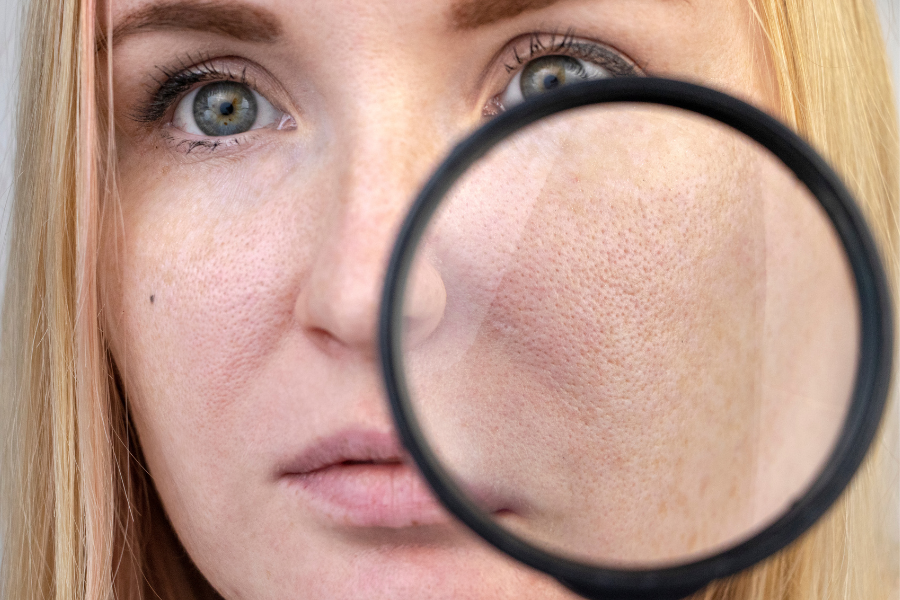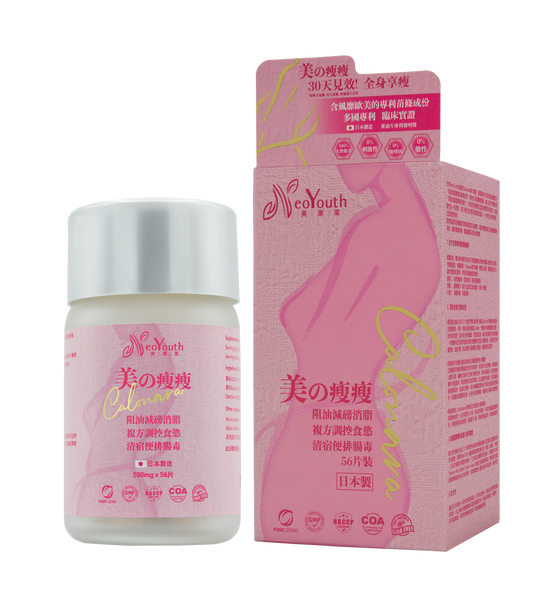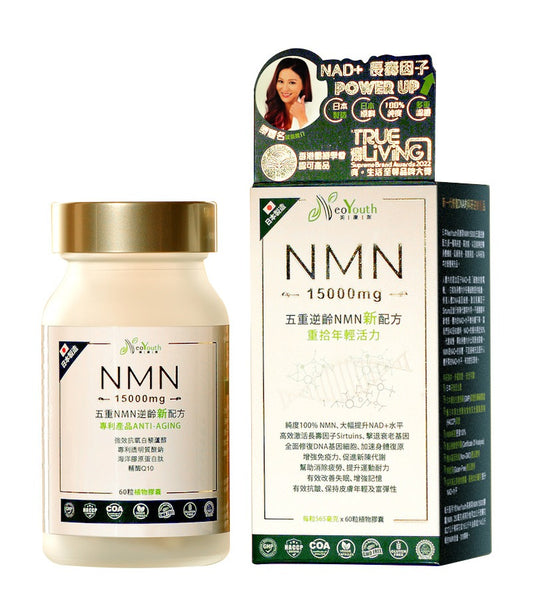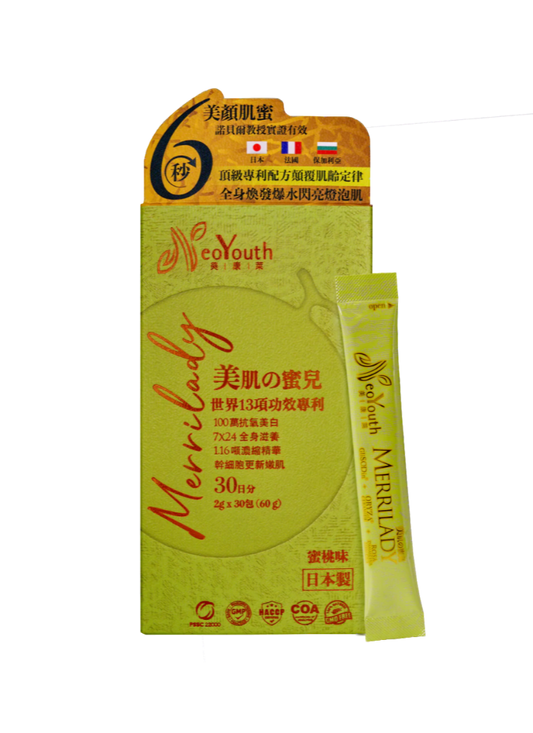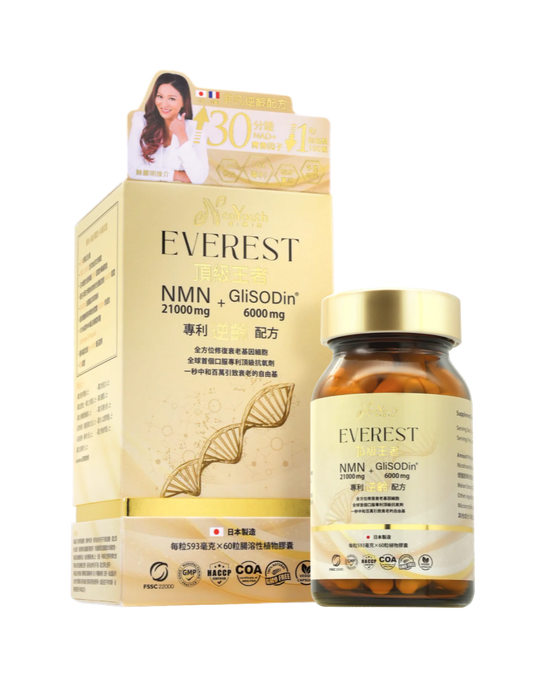As we age, our skin gradually loses collagen and elasticity, leading to enlarged pores and a rougher, more aged appearance. Understanding the causes of enlarged pores and corresponding improvement methods can help mature skin repair and improve age-related pore problems. This article will delve into pore issues caused by aging and provide practical skincare advice to help you regain smooth and refined skin.
A list of causes of enlarged pores
There are many causes of enlarged pores, mainly related to age, skin condition, and lifestyle habits, for example:
- Skin aging and loss of elasticity: As we age, the amount of collagen and elastin in our skin gradually decreases, leading to a decrease in skin firmness and causing the skin around the pores to sag, making the pores appear larger.
- Excessive sebum secretion: When the sebaceous glands secrete too much sebum, pores are easily clogged by sebum, dirt and dead skin cells, especially in the T-zone (from the forehead to the sides of the nose), which makes sebum secretion vigorous and pores become enlarged.
- Thickened stratum corneum: When the stratum corneum on the skin surface thickens, poor skin metabolism or lack of regular exfoliation can clog pores, leading to enlarged pores.
- Poor cleansing habits: Incomplete cleansing of the skin can lead to the accumulation of oil, dirt, or makeup residue in pores, which can clog pores and cause them to become enlarged.
- Acne and pimple problems: If acne becomes inflamed or is not treated, it may leave permanent scars and cause pores to become enlarged;
- UV damage: Long-term exposure to ultraviolet rays can damage the collagen and elastin fibers in the skin, making the skin rough and accelerating skin aging;
- Poor diet and lifestyle habits: Unhealthy lifestyle habits, such as smoking, drinking alcohol, and staying up late, can affect skin health and lead to various skin problems. A diet high in fat and sugar can also stimulate sebum secretion, thus enlarging pores.
How to repair aging pores?
Repairing enlarged pores caused by aging requires a multi-pronged approach, including improving skin elasticity, increasing collagen production, and maintaining skin cleanliness. First, regular exfoliation is essential. As we age, skin metabolism slows down, leading to a buildup of dead skin cells that clog pores. Regularly using gentle exfoliating products promotes shedding of dead skin cells, removes blockages, and makes pores appear smaller.
Secondly, it's important to keep your skin well-hydrated. Because aging-related pores tend to become dry, and lack of moisture can make pores appear larger. Additionally, using moisturizing products containing ingredients like hyaluronic acid can help firm the skin.
In addition, gentle skin cleansing products should be used. Pores caused by aging are more sensitive, so avoid using overly strong cleansing products or irritating cosmetics to prevent damaging the skin barrier and exacerbating enlarged pores.
What are some ways to improve enlarged pores?
So how can you improve large pores? First, thoroughly cleansing your skin is the primary step. Use a gentle cleanser every morning and evening to remove sebum, dirt, and residual makeup, preventing clogged pores.
For oily skin, controlling sebum secretion is an important step in improving enlarged pores. Choosing skincare products containing oil-controlling ingredients, such as those containing tea tree oil, can effectively reduce sebum production.
Of course, maintaining a healthy diet and getting enough sleep are also crucial for improving enlarged pores. A balanced diet rich in antioxidants, such as vitamins C and E and Omega-3 fatty acids, promotes healthy skin and improves pore condition. At the same time, sufficient sleep is essential for skin repair; insufficient sleep can lead to imbalanced sebum secretion, further exacerbating enlarged pores.
How to choose a supplement to improve enlarged pores? We recommend NeoYouth Merrilady (美肌の蜜儿) from Japan.
NeoYouth Merrilady, a Japanese skincare product , boasts 13 international efficacy patents. Combining revolutionary triple-care ingredients with three nationally recognized scientific formulas, it achieves a perfect golden ratio, clinically proven to provide 24-hour continuous and highly effective skin nourishment and rejuvenation. It continuously delivers hydration, brightening, anti-inflammation, and protection against oxidation by 1 million times, gradually repairing aging pores and improving enlarged pores, allowing you to regain youthful, healthy, and firm skin.
NeoYouth's Merrilady, a Japanese skincare brand, features three world-class ingredients, including GliSODin®, a patented French melon extract known as "super enzyme SOD." This ingredient is a top-tier component in the clinically proven antioxidant pyramid and is extracted from natural plant active ingredients. It is the world's first clinically proven SOD that is effective orally and can be absorbed through the digestive system.
The Japanese patented Oryza Ceramide® (also known as ceramide or ceramide) is the only ingredient in Japan that has been clinically proven to have both moisturizing and whitening effects. It can replenish moisture in the skin layers and strengthen the skin barrier to prevent moisture loss.
In addition, the high-concentration extract of Bulgarian Damask rose stem cells is a world-renowned nourishing ingredient containing unique active essences and various nutrients, which are effective in protecting skin cells, promoting epidermal cell regeneration, improving the skin's resistance to ultraviolet rays, and anti-inflammation.
Having explored methods for repairing aging-related pores and discussed the causes and improvement of enlarged pores, if you have any questions about NeoYouth Merrilady (美康莱Merrilady美肌の蜜儿) from Japan, please feel free to contact us.
Reference:
https://www.otandp.com/zh-hk/blog/shrink-pore-pore-microneedle
https://blog.erhgroup.com/aging-enlarged-pores/

